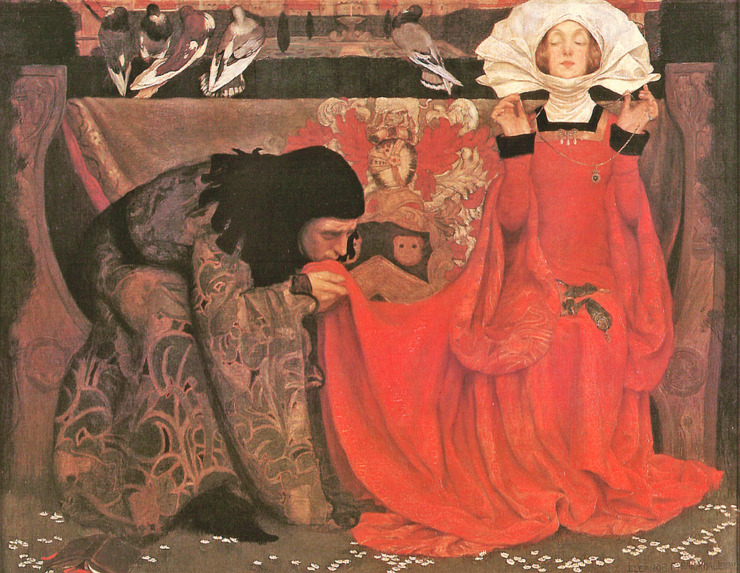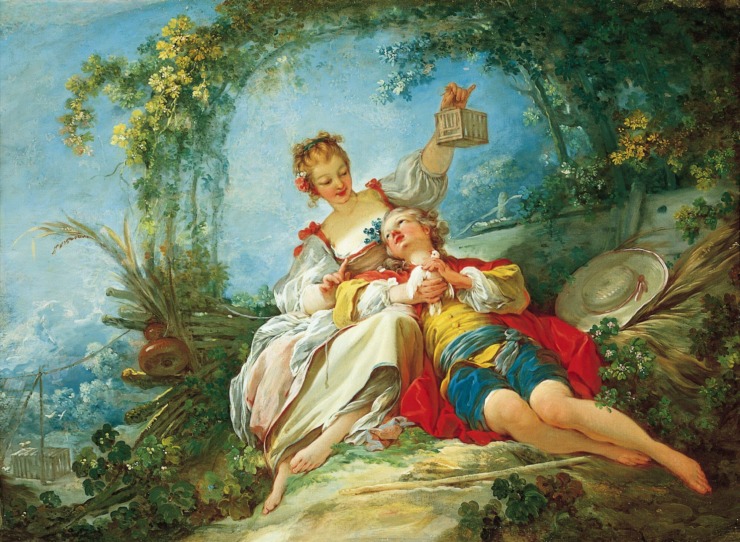The Pity of Love
A pity beyond all telling
Is hid in the heart of love:
The folk who are buying and selling
The clouds on their journey above
The cold wet winds ever blowing
And the shadowy hazel grove
Where mouse-gray waters are flowing
Threaten the head that I love.
-WB Yeats
Enjoy Artistic Representations of “The Pity of Love” by WB Yeats

The Pale Complexion of True Love by Eleanor Fortescue-Brickdale, 1899.

Happy Lovers by Jean-Honoré Fragonard, ca. 1760-1765.
Listen to this Reading of “The Pity of Love”
Listen to this Musical Interpretation of “The Pity of Love” by WB Yeats
About W.B. Yeats
William Butler Yeats was born in 1865 in Dublin into a family of the Protestant Anglo-Irish landowning class. He lived in Dublin and London during his growing up years. He was very much affected by the politics of the time, as he was a young adult when the protestant minority in power began to be displaced by the predominantly Catholic nationalist movement.
Yeats studied law for a time but eventually moved to London to study art. He was an accomplished playwright, and a founder of the Irish Theatre which was later to become the Abbey Theatre. While he is better known for his poetry, Yeats was awarded the Nobel Prize for Literature in 1923 more for his theatrical works than his verse. He was the first Irishman to be awarded the prize.
His first collection of poems was published in 1889, and there is strong evidence of the influence of Edmund Spenser and Percy Bysshe Shelley. Later, his poetry became more rooted in realism and the physical, with influence of Ezra Pound and William Blake apparent. Common themes in his poetry include mysticism, spiritualism, the occult and Irish identity and nationalism.
Yeats was appointed to the Irish senate in 1922. He was married, but had an ongoing relationship of sorts with a former love, Irish activist and revolutionary Maud Gonne. Known as one of the greatest poets of the 20th century, Yeats died in 1939.
That’s it for The Pity of Love!
BUY ‘HOW TO WRITE A FORM POEM’ NOW!
